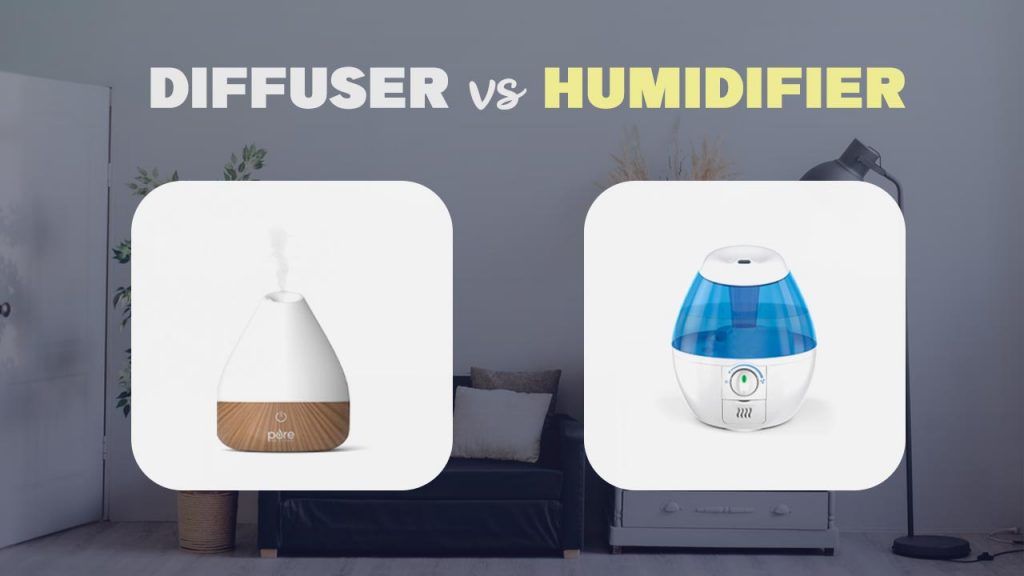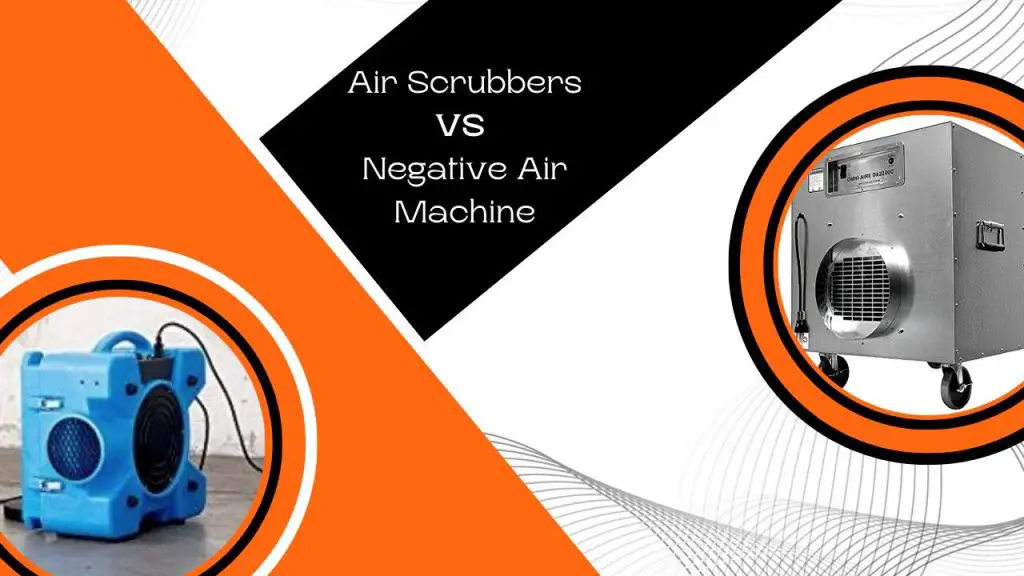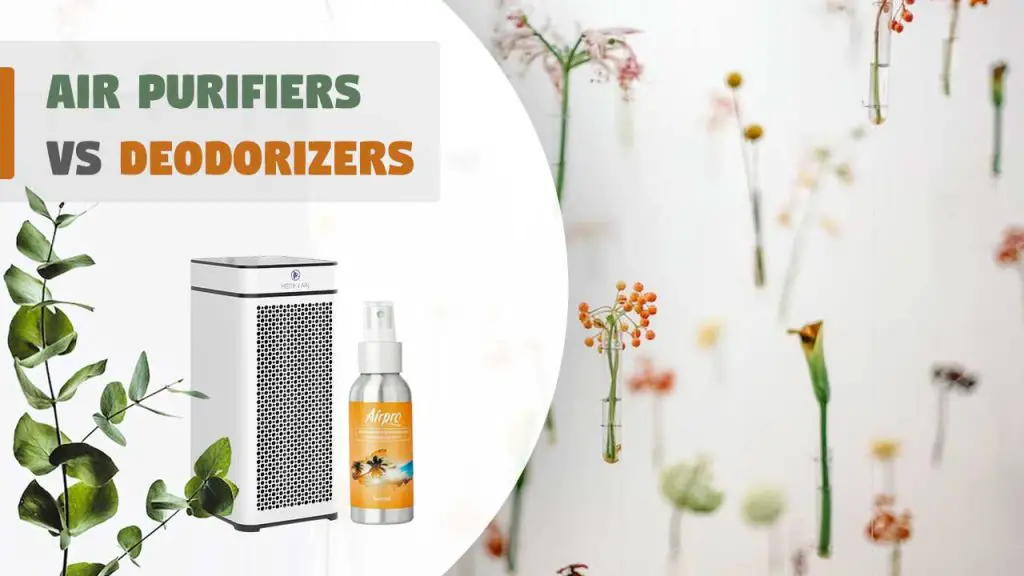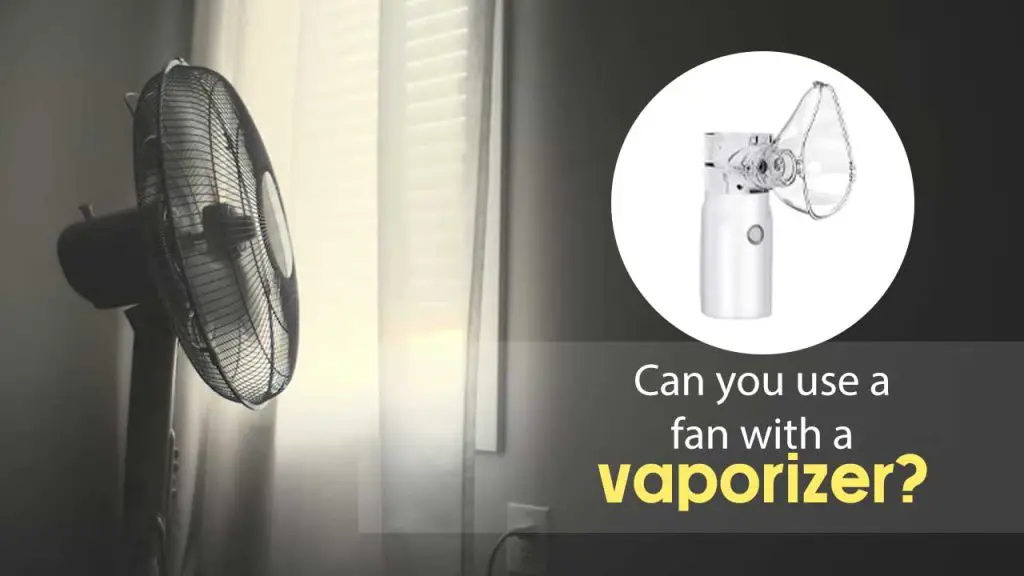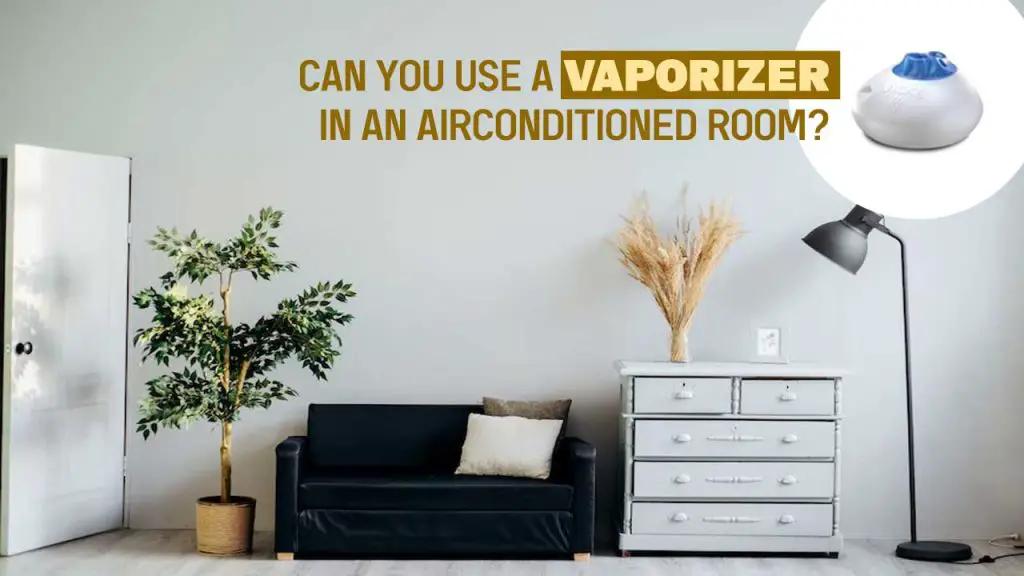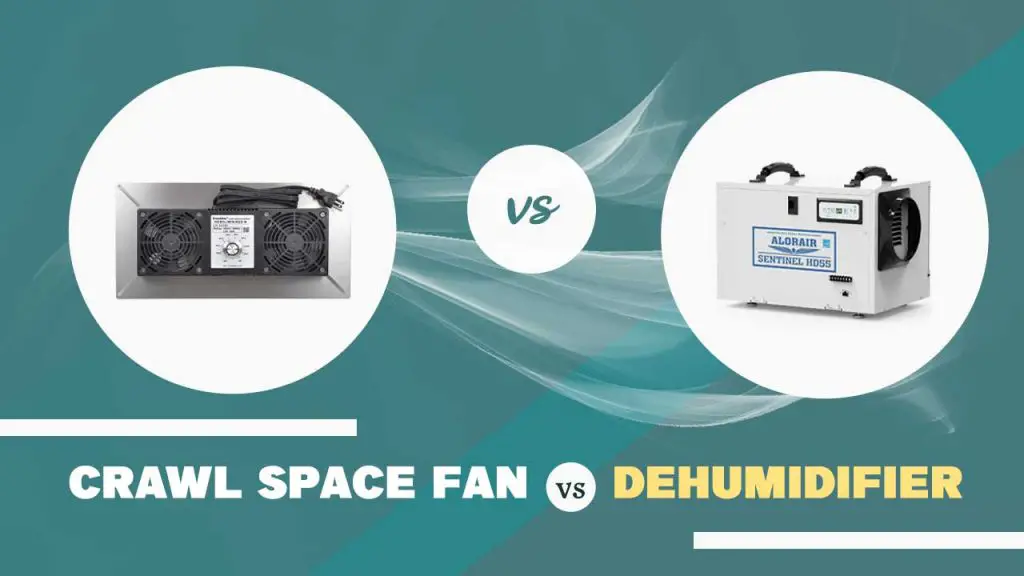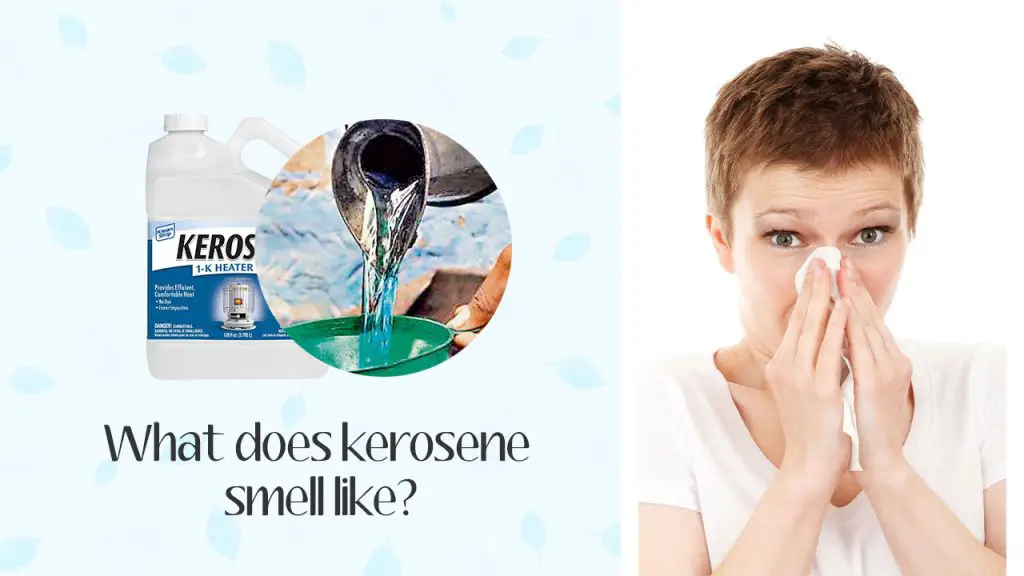There have been areas of contention between using a diffuser and a humidifier in an attempt to make your indoor air more convenient. A diffuser is an appliance that’s used to distribute essential oils in the air.
What it does is break down essential oils into smaller molecules and then disperse them into the air for a variety of therapeutic benefits.
On the other hand, a humidifier is basically a moisture-inducing appliance that helps to raise indoor humidity levels. But homeowners have often wondered if there’s a nexus between the two.
There have been discussions around the possibility of using a diffuser for humidifying and using a humidifier for adding essential oils in the home. But, is it true? Can a diffuser humidify a room? Are there areas of similarities or differences between the two?
These are questions that we’ll answer in this post, as well as attempt to show when it is better to use a diffuser and when one should use a humidifier in their home.
Can A Diffuser Humidify a Room?
The simple answer is Yes. A diffuser can add moisture to a room because it works with moisture and essential oils. The essential oils cannot evaporate from the appliance on their own; they need to be diluted with water to aid easy evaporation.
In this sense, diffusers tend to add certain amounts of moisture in the room, but only in small quantities. This can be quite significant if deployed in a small room as the humidity level can rise in some measure, but it may not do so much, in terms of humidifying larger rooms.
It is best to point out that a diffuser is designed to add therapeutic oils in the room and uplift mood, reduce anxiety and promote sleep. However, some people may decide to use just water without essential oils to add moisture to their homes in small quantities.
This should only happen when you already have a diffuser and do not intend to buy a humidifier. If you require only a small rise in humidity over a short period of time, your diffuser may be handy, but it won’t do so much in dry, arid regions with very low humidity.
This also depends on the type of diffuser you own. There are quite a number of them, including a nebulizer, ultrasonic diffuser, Reed diffuser and evaporative diffuser.
But regardless of the type of diffuser you use, they mostly release vapor in very small quantities, usually between 30ml to 100ml per hour. That’s quite small and is hardly enough to make a big difference in your home.
Differences Between Diffuser and Humidifier?
Asides from the few hybrid diffuser-humidifiers we have, the two appliances are actually different, even though many of them have similar external features and functionalities, they often perform different roles and should not be confused as one and the same. Let’s consider some differences.
1. Purpose
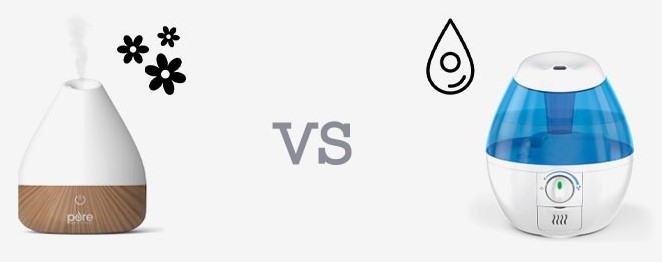
The purpose of a diffuser is to add fragrance and other forms of therapeutic/aromatic essential oils to the room, but a humidifier is designed primarily to add moisture to the room.
One is meant to provide soothing relief and make the room smell nice, while the other is designed to reduce dryness and prevent dryness-induced complications.
2. Method
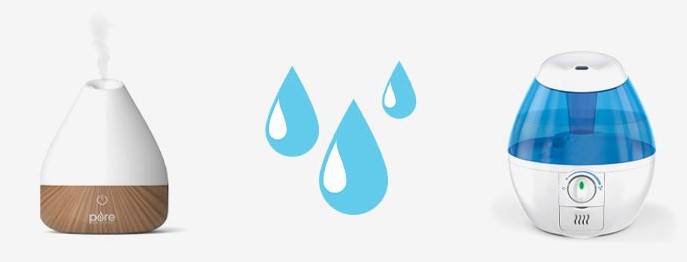
In terms of method, both appliances use water. However, the diffuser uses water to disperse fragrances and essential oils into the room, while a humidifier raises the humidity level in the room by gradually adding moisture vapor to the air.
3. Benefit
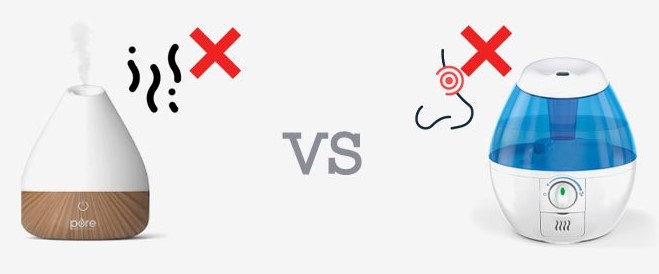
A diffuser comes with many benefits, including offering aromatherapy, removing bad smells and making the home smell better.
On the other hand, a humidifier helps to remove all the discomforts that dry air causes, including a stuffy nose, itchy throat, dry skin, and also its impact on the furniture.
4. Size
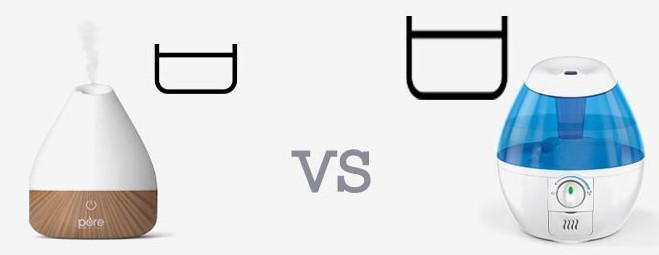
The size here includes the overall size of the appliance and the size of its reservoir. Basically, a humidifier is usually larger than a diffuser.
In fact, a humidifier tank usually starts at 0.5 gallons to as large as 4 gallons or more in some cases. The diffuser, on the other hand, has a reservoir that’s only able to take about a cup of water.
Is It Better to Use A Diffuser Or Humidifier?
This is a question without a straight answer. A diffuser is better when aromatherapy is needed while a humidifier is better when humidity is needed. If you own a small room with damp, smelly air, it is better to use a diffuser in that situation.
A humidifier might take the humidity level higher than required and complicate things for you. But, when the winter season comes and we all have to deal with colder, drier air, it is better to deploy a humidifier for increased air moisture content.
It basically depends on what you need the appliance for. If what you need is increased humidity, a humidifier is your best option because it will add moisture to indoor air, between 20% to 60% moisture in a matter of hours.
On the flip side, a diffuser won’t be able to do this. You should use a diffuser if what you require are aromatherapy and a pleasant fragrance.
But what if you need aromatherapy and humidity? The good news is, that there are now some appliances with hybrid functionalities. You can get one of those for the situation.
Furthermore, there are modern humidifiers built to withstand essential oils. If you live in a dry region and you also require aromatherapy, you can get a humidifier that also allows the addition of essential oils to be dispersed along with moisture.
A great example is the Aromacare Humidifier which can be used as a humidifier and an essential oil diffuser concurrently.
When To Use a Diffuser Instead of Humidifier?
Use a diffuser when the humidity level in your home or office is quite stable, but you need to make the room smell better and uplift your mood. Do not use a humidifier when you already have average humidity at 30% to 60%.
This would lead to excess indoor humidity and can promote the growth of bacteria and other infections.
A diffuser will not add to the humidity level because its output mist is measured in milliliters and will not make any significant impact.
When To Use a Humidifier Instead of A Diffuser?
A humidifier becomes necessary when the room is excessively dry and there’s a need to raise the humidity level. Also, you should use a humidifier when there’s no obvious need for aromatherapy.
A diffuser, at best and running continuously, may only increase humidity by 3%-5% in a small room.
This is largely insignificant and would not have the same impact as a humidifier. A diffuser just doesn’t hold and disperse that much moisture to have any real impact on your indoor humidity.
A humidifier should be properly monitored so that humidity level doesn’t rise above and beyond recommended levels, otherwise, the purpose would’ve been defeated.
Final Words:
The importance of indoor appliances like a diffuser and humidifiers cannot be overemphasized. These are two important devices that can make the difference between indoor convenience and a room filled with infection, allergens, and a terrible stench.
But, they should never be confused to be the same thing, they are not. We hope we’ve been able to straighten that out in this post, as well as let you know what situations require a diffuser and when you need a humidifier.
Whatever you choose to purchase based on your needs, you must go for quality and value over anything else.
| Photo | Title | Buy |
|---|---|---|

|
LEVOIT Air Purifier for Home & Bedroom - For Allergies and Pets Hair | Check Price On Amazon |

|
BREEZOME 60 OZ Quiet Dehumidifiers for Home, Dual-Semiconductor | Check Price On Amazon |
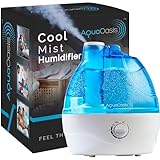
|
AquaOasis™ Cool Mist Quiet Ultrasonic Humidifier for Bedroom & Large room | Check Price On Amazon |

|
43.3'' Portable Air Conditioners, 3-IN-1 Evaporative Air Cooler w/Remote | Check Price On Amazon |

|
BlueDri BD-AS-550-BL Negative Machine Airbourne Cleaner HEPA Air Scrubber | Check Price On Amazon |

|
Space Heater, VCK 24" 12ft/s Fast Quiet Heating Portable Electric Heater | Check Price On Amazon |
